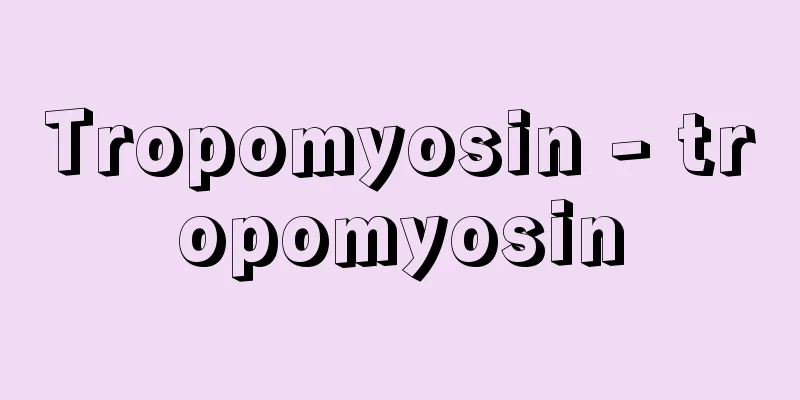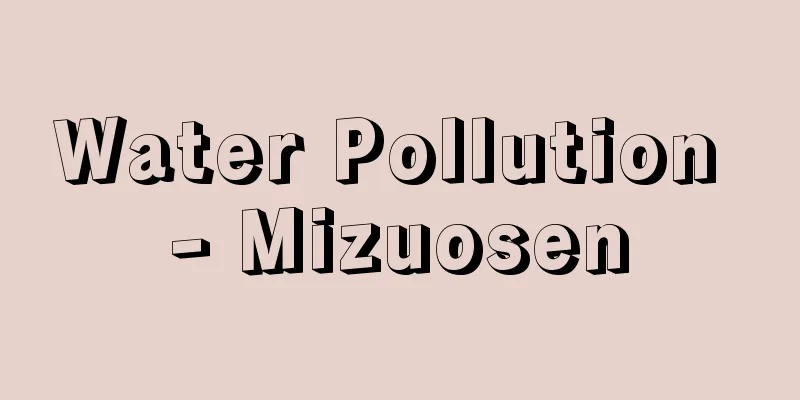Kotoku Shusui

|
A socialist of the Meiji period. Born in Kochi Prefecture on September 22, 1871. His real name was Denjiro. He grew up in a family that was involved in the sake brewing and drug business, and was said to be intelligent and a child prodigy. He developed a strong interest in the Freedom and People's Rights Movement from about the age of 11, and in 1887 (Meiji 20) he went to Tokyo and became a student of Hayashi Yuzo. At the end of the same year, he was banished from Tokyo when the Security Ordinance was issued, and returned home. In November 1888, he became a student servant of Nakae Chomin in Osaka, and was influenced by him both ideologically and as a person. Chomin also recognized Kotoku's talent and bestowed the pen name "Shusui" on him. In April 1891, he returned to Tokyo and graduated from the National English Association. After working for the Jiyu Shimbun, Hiroshima Shimbun, and Chuo Shimbun, he joined the Yorozu Choho in February 1898. In November of the same year, he joined the Socialism Research Association, and in October 1909, he became a member of the Universal Suffrage Promotion Alliance, along with Katayama Sen and others. When the Rikken Seiyukai (Friends of Constitutional Government) was founded in August 1900 (Meiji 33), at the request of Chomin, he published a fiery "Essay in Praise of the Liberal Party" in the Yorozu Chosun Hō, and in April 1901, he wrote "Monster Imperialism of the 20th Century," sharply criticizing the true nature of "military, boastful, candy-like imperialism." In May of the same year, he formed the Social Democratic Party with Abe Isoo, Kinoshita Naoe and others, but it was banned the same day. In July, he formed the Ideal Group within the Yorozu Chosun Hō with Uchimura Kanzō and others. In December, at the request of Tanaka Shozo, who was working hard on the Ashio Copper Mine pollution issue, he drafted a direct appeal. In July 2003, he published "The Essence of Socialism," which discussed the direction socialism should aim for and how to achieve it. In October, he left Yorozuchoho, along with Sakai Toshihiko and Uchimura, when the newspaper turned to advocating war between Japan and Russia. In November, he formed the Heiminsha with Sakai and others and began publishing the weekly Heimin Shimbun. In March 2004, he published "A Letter to the Socialist Party of Russia," calling for solidarity between the working classes of Japan and Russia. In November, he translated and published the Communist Manifesto with Sakai. In February 2005, he was sentenced to five months' imprisonment for violating the Newspaper Ordinance, and while in prison he was strongly influenced by Kropotkin's anarchist ideas. After being released from prison, he went to the United States to recuperate, and was influenced by Mrs. Fritsch, a member of the Russian Socialist Revolutionary Party, and in June 1906, he formed the Socialist Revolutionary Party with Iwasa Sakutaro and others. After returning to Japan, he gave a speech on "Trends of the World Revolutionary Movement" at a welcoming party for the Japan Socialist Party. In February 1907, he published "Changes in My Thought" in the daily newspaper Heimin Shimbun, in which he developed a theory of direct action through general strikes by workers, and in the same month, at the second convention of the Japan Socialist Party, he came into fierce conflict with Tazoe Tetsuji's theory of parliamentary policy. In September, he formed the Friday Society in Sakai with Yamakawa Hitoshi and others. He returned home to recuperate from illness, and worked on translating Kropotkin's "The Snatch of the Bread." Upon hearing of the Red Flag Incident, he went to Tokyo in August 1908, fell in love with Kanno Suga, and the two began living together. In May 1909, he published "Free Thought," but it was banned and the movement stagnated. In June 1877, he was arrested for his involvement in the so-called High Treason Incident, and in January 1911, he was sentenced to death as the mastermind behind a plot to assassinate the Emperor, and was executed on the 24th. [Fujio Ogino] "The Complete Works of Kotoku Shusui, 9 volumes and 2 supplementary volumes (1966-72, Meiji documents)" ▽ "Studies on Kotoku Shusui, by Itoya Toshio (1967, Aoki Shoten)" ▽ "The Thoughts of Kotoku Shusui and the High Treason Incident, by Ohara Satoshi (1977, Aoki Shoten)" [Reference] |©Shogakukan Library "> Kotoku Shusui Source: Shogakukan Encyclopedia Nipponica About Encyclopedia Nipponica Information | Legend |
|
明治時代の社会主義者。明治4年9月22日高知県に生まれる。本名伝次郎(でんじろう)。酒造兼薬種業の家に育ち、聡明(そうめい)で神童といわれた。11歳ごろから自由民権運動に強い関心を抱き、1887年(明治20)上京して林有造(ゆうぞう)の書生となる。同年末保安条例発布で東京を追放され帰郷。88年11月大阪で中江兆民(ちょうみん)の学僕となり、その思想的、人格的感化を受ける。兆民も幸徳の才能を見抜き、「秋水」の号を贈る。91年4月ふたたび上京し、国民英学会を卒業する。『自由新聞』『広島新聞』『中央新聞』を経て、98年2月『萬朝報(よろずちょうほう)』に入社。同年11月社会主義研究会に入り、99年10月結成の普通選挙期成同盟会では片山潜(せん)らとともに幹事となる。1900年(明治33)8月立憲政友会の創立に際し、兆民の依頼で激烈な「自由党を祭る文」を『萬朝報』に発表し、01年4月『廿世紀(にじっせいき)之怪物帝国主義』を著し「軍人的、空威張(からいばり)的飴細工(あめざいく)的帝国主義」の実態を鋭く指摘する。同年5月安部磯雄(あべいそお)、木下尚江(きのしたなおえ)らと社会民主党を結成するが即日禁止される。7月内村鑑三(かんぞう)らと萬朝報社内に理想団を結成。12月足尾鉱毒問題で奔走する田中正造(しょうぞう)の依頼で直訴文を起草する。03年7月社会主義の目ざす方向とその実現方法を論じた『社会主義神髄』を刊行し、10月、日露開戦論に転じた萬朝報を堺利彦(さかいとしひこ)、内村とともに退社、11月堺らと平民社を結成して週刊『平民新聞』を発刊する。04年3月「与露国社会党書」を発表、日露両国労働者階級の連帯を訴える。11月堺とともに『共産党宣言』を訳載する。05年2月新聞紙条例違反で禁錮5か月の刑を受け入獄、獄中でクロポトキンの無政府主義思想に強い影響を受ける。 出獄後保養を兼ねて渡米、ロシア社会革命党員フリッチ夫人の感化を受け、1906年6月岩佐作太郎(さくたろう)らと社会革命党を結成する。帰国後、日本社会党の歓迎会で「世界革命運動の潮流」を演説。さらに07年2月、日刊『平民新聞』に「余が思想の変化」を発表して労働者のゼネストによる直接行動論を展開、同月の日本社会党第2回大会で田添鉄二(たぞえてつじ)の議会政策論と激しく対立する。9月堺、山川均(ひとし)らと金曜会を結成。病気保養のため帰郷、クロポトキンの『麺麭(パン)の略取』翻訳に従事する。赤旗事件の報に接して08年8月上京、管野(かんの)すがと恋愛、同棲(どうせい)し、09年5月『自由思想』を発刊するが、発禁となり運動も停滞する。10年6月いわゆる大逆(たいぎゃく)事件に連座して検挙され、天皇暗殺計画の主謀者として明治44年1月死刑を宣告され、24日処刑された。 [荻野富士夫] 『『幸徳秋水全集』9巻・別巻2巻(1966~72・明治文献)』▽『絲屋寿雄著『幸徳秋水研究』(1967・青木書店)』▽『大原慧著『幸徳秋水の思想と大逆事件』(1977・青木書店)』 [参照項目] |©小学館ライブラリー"> 幸徳秋水 出典 小学館 日本大百科全書(ニッポニカ)日本大百科全書(ニッポニカ)について 情報 | 凡例 |
>>: Toxicant from waste minerals
Recommend
Ikisan Choshizuka Tomb - Ikisan Choshizuka Tomb
This keyhole-shaped tomb is located in Nijo Tanaka...
Sayo [town] - Sayo
A town in Sayo County in western Hyogo Prefecture....
Midosuji - Midosuji
This is Osaka's representative main road that...
Decubitus - Decubitus
It is also called caisson sickness, diver's di...
Contarini, D.
…A Byzantine-Romanesque cathedral representing Ve...
Basket - Curved
〘 noun 〙 A vessel used for drinking sake or water....
River stone
The central settlement of Honai, located in the no...
Tomioka
The former town area of northwest Reihoku Town i...
Ichikawa Danjuro
Kabuki actor. Stage name: Narita-ya. The first ge...
Nikolai
Year of death: February 16, 1912 (Meiji 45) Year o...
Cassini, Jean D.
…A family of French astronomers. Four generations...
Sommer, F.
…Hittite was discovered to be a branch of the Ind...
Christine de Pizan (English spelling)
1365‐1430? A French female writer of the late Midd...
sinusoid
…This area is called Glisson's sheath, or por...
Caput
…According to this law, the unit of taxation, the...









